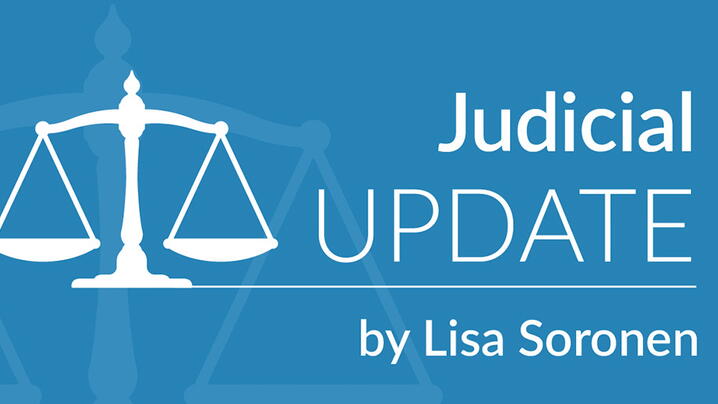
by Lisa Soronen, executive director, State and Local Legal Center
The Fifth Amendment says no person shall be “compelled in any criminal case to be a witness against himself.” In Hays, Kansas v. Vogt, the Supreme Court has agreed to decide whether the Fifth Amendment is violated when a public employee’s compelled, self-incriminating statements are used against him or her at a probable cause hearing rather than at a trial.
The State and Local Legal Center (SLLC) filed an amicus brief supporting the city of Hays, arguing that the city should not be liable for the use of such statements because it has no control over how a prosecutor uses them.
In Garrity v. New Jersey (1967), the Supreme Court held that public employers violate the Fifth Amendment when they give employees a choice between “self-incrimination or job forfeiture,” which is what Matthew Vogt claims happened to him.
Vogt worked as a police officer for the city of Hays. In an interview with the city of Haysville, Kansas, Vogt disclosed he had kept a knife he obtained in the course of his work as a Hays police officer. Haysville offered Vogt the job but told him he had to tell Hays about the knife and return it. Vogt did so.
The Hays police chief told Vogt to write a report about the knife; Vogt wrote a vague one-sentence statement. The Hays police chief then told Vogt to write a more detailed statement. Vogt claims this more detailed statement was a compelled, self-incriminating statement. It was used to locate more evidence.
Vogt was charged with two felonies related to possessing the knife. Per state law, he received a probable cause hearing before trial. Charges were dismissed at the probable cause hearing.
Vogt sued the city of Hays, claiming that it violated his right to be free from self-incrimination because his compelled, incriminating statements were used against him in a probable cause hearing. The Tenth Circuit concluded that the right against self-incrimination is more than a trial right by looking at the text of the Fifth Amendment, which doesn’t use the term “trial” or “criminal prosecution.”
The SLLC amicus brief argues that government employers should not be liable for the use of compelled, self-incriminating statements by prosecutors at probable cause hearings (or at trials) because government employers have no control over whether or how a prosecutor uses such statements. If government employers can be liable for the actions of prosecutors, they may be less likely to ferret out employee misconduct. Alternatively, the SLLC amicus brief argues Vogt’s sole remedy, in this case, should be the exclusion of his statements in his criminal case, not money damages against the city.
Stuart Raphael and Hunton Williams wrote the SLLC amicus brief, which was joined by the National Association of Counties, the National League of Cities, the United States Conference of Mayors, the International City/County Management Association, the International Municipal Lawyers Association, the National Public Employer Labor Relations Association, and the International Public Management Association for Human Resources.
New, Reduced Membership Dues
A new, reduced dues rate is available for CAOs/ACAOs, along with additional discounts for those in smaller communities, has been implemented. Learn more and be sure to join or renew today!

